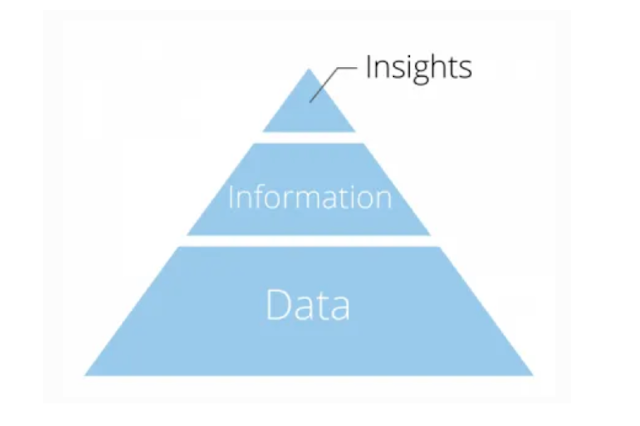5 Questions To Ask Before Hiring A Data Analytics Company
In the data-driven landscape of modern businesses, it's not just about accumulating data but making informed decisions using it. With the burgeoning advancements in data analysis tools and the complexity of data management, having professional expertise has never been more critical. Choosing the right data analytics company can make the difference between wandering aimlessly in a data wilderness and paving a clear path to actionable insights.
Q1. How do you handle data integration from diverse sources?
Remember the debacle when Hewlett-Packard (HP) Business Intelligence reports showed inconsistent results because of poor data integration? The era of siloed data storage is long gone, and companies risk significant revenue and trust when integration is mishandled.
Importance: McKinsey says that companies that depend heavily on data and make decisions based on that integrated data show the following results:
- Profits went up by 93%,
- sales went up by 82%, and
- the rate of sales growth went up by 112%.
Seamless data integration is essential for accurate Business Intelligence reports.
Expected Answer: A leading data analytics company should detail its expertise with ETL processes. Look for mentions of modern tools, such as Asana or Hubspot.
Bill James, a BI expert, once said, "Integration isn't just about merging data, but understanding it." So, ensure that the company doesn't just combine data but comprehends it.
Takeaway: Test their integration capabilities. Ask for a trial project or demonstration to see how they handle your data.
Q2. How do you ensure data security and compliance throughout the analytics process?
With major corporations facing data breaches, the safety of your data is more critical than ever. Remember the backlash faced by companies such as Google penalized with $57 million, Marriott International had to pay $123 million, and British Airways paid $230 million after failing to comply with GDPR?
Expected Answer: It's crucial that the data analytics company adheres to best-in-class security standards. Listen for mentions of data analysis tools that have built-in security features. They should discuss methods like end-to-end encryption, data anonymization, and regular audits.
Takeaway: Investigate their history. Have they ever faced breaches? How did they respond? Ensure the tools they recommend, like data analysis software, prioritize security.
Q3. Can you provide examples of similar projects or case studies in our industry?
At Altaworx, Forrest Derr faced the challenge of creating customizable data dashboards amidst evolving metric definitions, which traditionally required extensive coding and IT expenditure.
Using Grow's data analytics company, Altaworx developed effective dashboards, enhancing accounts receivable, unveiling product profitability insights, and boosting company-wide data transparency. This led to the recovery of $40,000 in cash flow and refined marketing strategies, positioning Altaworx for future growth.
Expected Answer: The ideal data analytics company should readily share past project stories, challenges faced, and solutions implemented. They should demonstrate a rich understanding of domain-specific challenges and how their choice of data analysis software catered to those needs.
As data expert Hilary Mason says, "Data reflects the past, but insights shape the future." An analytics firm with industry knowledge can better shape your company's future.
Takeaway: Dive deep into their case studies. Look for tangible results and cross-check with past clients if possible.
Q4. How do you ensure scalability and flexibility in your analytics solutions?
Importance: Scalability in data analytics is among the top three factors influencing business success in growing firms.
Expected Answer: Your data analytics company should emphasize future-proof solutions, possibly cloud-based infrastructures or containerized data solutions. Their adoption of adaptable data analysis tools ensures they're prepared for the spiraling growth of data.
Steve Jobs once remarked, "You can't just ask customers what they want and then try to give that to them. By the time you build it, they'll want something new." Scalability ensures you're always ahead.
Takeaway: Ask about their biggest client or the most substantial data volume they've handled. It gives a sense of their scalability ceiling.
Q5. How do you translate technical data insights into actionable business strategies?
Many executives and business leaders have admitted that their shift from raw data analytics to actionable Business Intelligence reports has positively affected their sales.
Expected Answer: The company should demonstrate prowess in tools that transform complex data into understandable visuals. They should also share their frameworks for contextualizing data for various business operations.
Takeaway: Request a sample Business Intelligence report from them. Does it make sense to you? Can you make a business decision based on it?
Conclusion
Hiring the right data analytics company can be the differentiator between business growth and stagnation. By asking these five essential questions, you're not only ensuring the firm possesses the required technical expertise, but you're also aligning their approach with your specific business needs.
Remember, effective data analytics isn't just about crunching numbers; it's about deriving actionable insights that can propel your organization forward. As you embark on this journey to find the perfect analytics partner, arm yourself with these questions to make a strategic choice.
And if you're eager to witness the power of top-tier data analytics in action, consider exploring Grow.com. Check out their outstanding reviews on Grow with Grow.com TrustRadius and take the first step towards transformative business insights.
Ready to delve deeper into the world of data analytics? Save this guide and share it with your team. Making informed decisions starts with asking the right questions.

Comments
Post a Comment